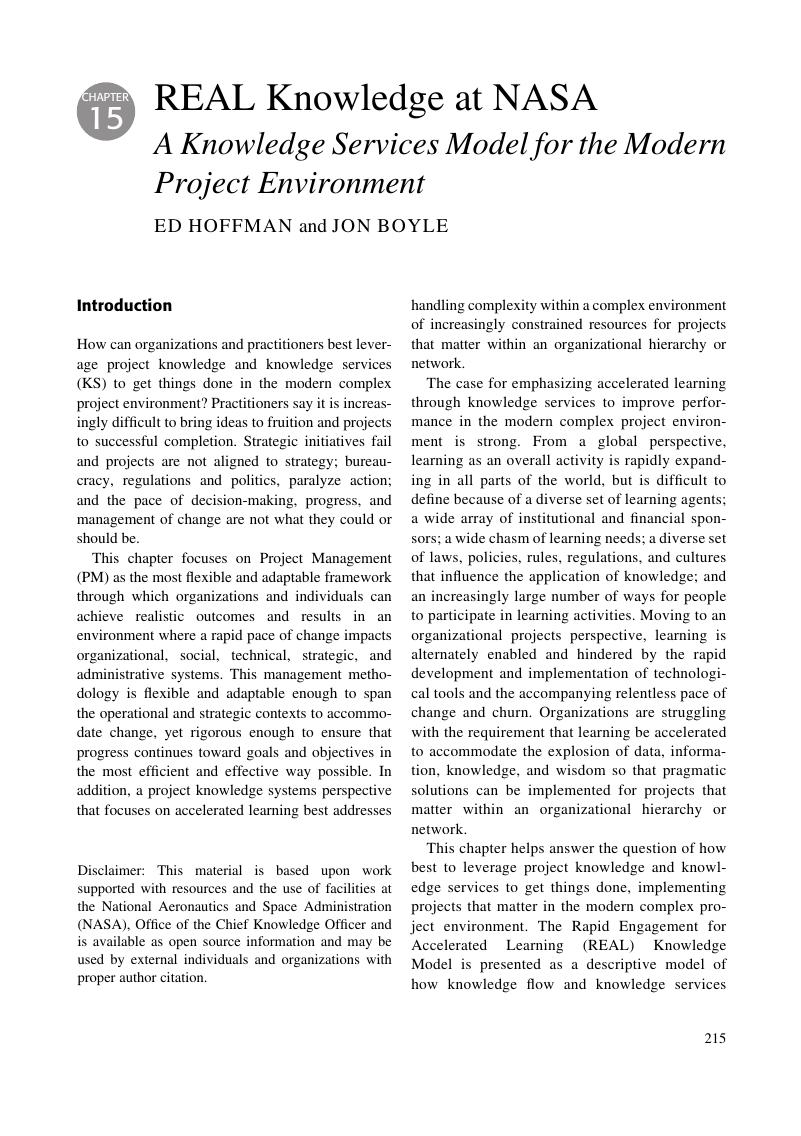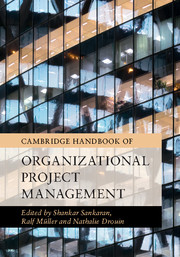Book contents
- Cambridge Handbook of Organizational Project Management
- Cambridge Handbook of Organizational Project Management
- Copyright page
- Contents
- Figures
- Tables
- Contributors
- Foreword
- Introduction
- Part I Strategy
- Part II Organizations
- Part III People
- Introduction to Part III
- Chapter 11 Human Resource Management in Organizational Project Management
- Chapter 12 Stakeholders
- Chapter 13 Balanced Leadership
- Chapter 14 Project Teams and Their Role in Organizational Project Management
- Chapter 15 REAL Knowledge at NASA
- Chapter 16 Change Management as an Organizational and Project Capability
- Chapter 17 The Behavioral “Glue” in OPM
- Chapter 18 Developing Organizational Project Management Competencies through Industry Clusters
- Part IV New Directions
- Conclusions
- Index
- References
Chapter 15 - REAL Knowledge at NASA
A Knowledge Services Model for the Modern Project Environment
from Part III - People
Published online by Cambridge University Press: 08 June 2017
- Cambridge Handbook of Organizational Project Management
- Cambridge Handbook of Organizational Project Management
- Copyright page
- Contents
- Figures
- Tables
- Contributors
- Foreword
- Introduction
- Part I Strategy
- Part II Organizations
- Part III People
- Introduction to Part III
- Chapter 11 Human Resource Management in Organizational Project Management
- Chapter 12 Stakeholders
- Chapter 13 Balanced Leadership
- Chapter 14 Project Teams and Their Role in Organizational Project Management
- Chapter 15 REAL Knowledge at NASA
- Chapter 16 Change Management as an Organizational and Project Capability
- Chapter 17 The Behavioral “Glue” in OPM
- Chapter 18 Developing Organizational Project Management Competencies through Industry Clusters
- Part IV New Directions
- Conclusions
- Index
- References
Summary

- Type
- Chapter
- Information
- Cambridge Handbook of Organizational Project Management , pp. 215 - 235Publisher: Cambridge University PressPrint publication year: 2017

